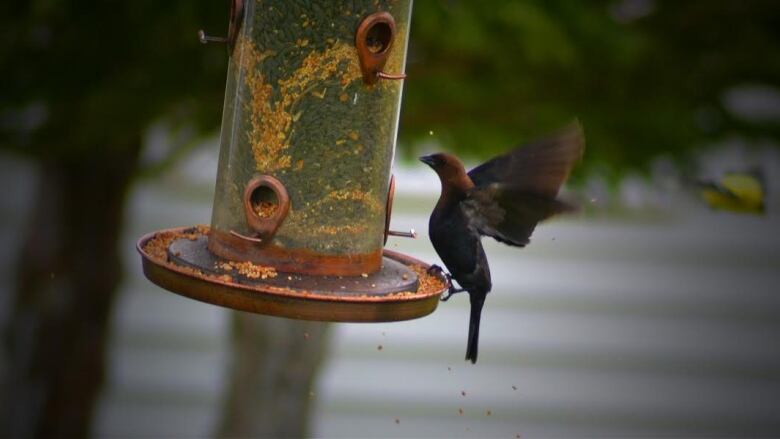Take down your feeders: N.L. top vet warns of possible bird parasite in province

Possible signs of the parasite known as frounce are being spotted in Newfoundland and Labrador birds, and that has the province's top veterinarian asking the public to take precautions.
Frounce attacks the bird's crop, a pouch near its throat that acts as an important part of its digestive system. Birds with the disease look sick and weak.
"It causes an infection in the crop of the bird that makes them be unable to swallow, essentially, and they can't eat and they sort of waste away," said Chief Veterinary Officer Dr. Laura Rogers, adding the parasite also causes inflammation and ulcers.
Rogers had not diagnosed any cases as of Aug. 10, although she said she is waiting for a few possibly infected bodies to be delivered to her office for autopsy.
"I know there's been a lot of talk in the birding community about some sick and dying birds around bird feeders in the province. I don't have a good handle myself on where this is happening," Rogers told CBC Radio's On The Go.
Bird feeders: a possible problem
Feeders can be a problem because they can act as transmission sites for the parasite, according to Rogers.
"When the birds ingest feed, because they can't swallow and the parasite is in their crop, when they regurgitate the material around their mouth… [it] is contaminated with the parasite. So what happens [is] other birds can come eat that seed and become infected that way. It's a fairly simple transmission," she said.
I think it's absolutely reasonable to take down bird feeders.- Dr. Laura Rogers
Despite the lack of official confirmation of frounce in Newfoundland and Labrador, Rogers recommends a precautionary step.
"I think it's absolutely reasonable to take down bird feeders," she said.
"I know a lot of people really enjoy watching birds, but if you see them sick or dying around your feeder, I think the kindest thing to do would be to take down your feeder."
Rogers said an extra measure would be to wash and disinfect that feeder with bleach.
Rogers said dead birds suspected to have frounce can be sent to her office in St. John's, or to the Canadian Wildlife Health Cooperative in Charlottetown, PEI.
With files from On The Go